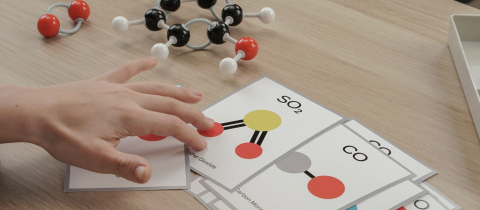President Trump recently claimed that the U.S. is doing very well in the battle against COVID-19 because the death rate from the disease is declining. This was said in support of his agenda of “opening up” the country, totally ignoring that new records are being set virtually every day for people testing positive for the SARS-CoV-2 virus. What we have here is a typical case of “cherry-picking” of data. It isn’t that Trump’s information is incorrect, it just doesn’t present a complete picture of the situation.
Of course cherry-picking is not limited to the U.S. President. Environmentalists, industry representatives, activists of all sorts, and government officials are in on the harvest. At issue is highlighting, or “cherry picking,” data that support a particular position, usually a controversial one, while ignoring relevant contradictory evidence. Of course, these days there is no lack of scientific controversies. Concerns over the safety of plastic components, cosmetic ingredients, medications, pesticides, genetically modified organisms, cell phones, microwave ovens, drinking water, climate science, and the wearing of masks are very much in the public eye. People search for guidance in tackling these issues, and they look for dispassionate, unbiased answers. In theory, that is just what scientific research should be able to deliver.
In the best of all possible worlds, scientists would all be competent, they would have no preconceived biases, would not be driven by monetary gain, would have access to plentiful funding from unbiased sources, and would have their egos safely tucked away. Alas, we do not live in Utopia. Indeed, the only uncontestable remark that can be made about current scientific research is that is it plentiful. Actually, that is an understatement. Its sheer volume is mind-boggling. Thousands of peer-reviewed research papers are published every week, obviously not all of equal quality. Contradictory findings are not uncommon, even in the absence of any bias. As a result, scientific publications can be found to support almost any point of view. You just have to be prepared to do a little cherry picking.
If you want to “prove” that the pesticide DDT was responsible for an increase in breast cancer on New York’s Long Island, you can certainly find peer-reviewed publications to back up the claim. But you can also “prove” the opposite by pointing at a seven-year-long federally funded study that showed no such effect. Studies can be found linking bisphenol A with developmental problems in rodents but the literature also reveals plenty of studies absolving the chemical of blame. Antioxidant supplements are effective in warding off disease according to some studies, and useless according to others. This doesn’t mean that any of the studies are wrong, it just highlights the difficulty of obtaining conclusive results when many variables are involved. That’s just the nature of science.
But science gets short-shrifted, and the public ends up being misled when data are presented selectively to support an agenda. And when the stakes are high, this is almost inevitable. Unfortunately at McGill’s Office for Science and Society, we witness this on a daily basis as we try to make heads or tails of scientific controversies. Some public-spirited group will get on its high horse and claim, with supporting studies, that one or other chemical in our environment is wreaking havoc with our health. Industry then responds by circling its wagons and trotting out contradictory studies. Both sides sound convincing. Governments get involved, but any action has to take both activist and corporate sensitivities into account. There is name-calling aplenty on all sides, with the combatants attempting to out-muscle each other by enlisting reputable scientists to further their cause. These scientists may be hired directly by the organizations involved, they may have connections through sponsored research, or they may just support a certain view out of conviction. Each of these scenarios raises concerns.
Working directly for a vested interest is not conducive to objectivity. There is plenty of historical evidence for scientific philandering in, for example, the tobacco, asbestos, chemical, pharmaceutical and dietary supplement industries. Either the risks of the products are downplayed, or the benefits overplayed, which can readily be done by referring to the literature selectively. “Environmentalists” have also been known to play the same game. And much too often, the response to an unfavourable study is an attempt to discredit the research by searching for methodological flaws, instead of scrutinizing the work objectively.
With cutbacks in government-sponsored research, scientists are increasingly looking to industry for grants. Although it is nonsensical to dismiss a study just because it may have been sponsored, there is clear evidence that such studies are more likely to favour industry than studies that are totally independent. On occasion, even independent researchers may be so convinced of the merits of their pet view that they become self-delusional and ignore any contrary evidence.
Science should of course be objective and pristine. Let the data rule! All the data! But teasing out a sound scientific conclusion from the overwhelming amount of information available today is a daunting task. It requires detachment from any vested interest, expertise in evaluating the quality of studies, and recognition of the fact that experimental results can be misinterpreted or purposefully twisted. Unfortunately, we are experiencing this with the coronavirus situation. When it comes to questions about hydroxychloroquine, intravenous vitamin C, airborne transmission, the efficacy of disinfectants, or just hugging grandchildren, once can find studies to back up any view. The fact is that with COVID-19, we are dealing with a beguiling situation and it is very difficult to come to conclusions except for noting that life is not a bowl of cherries. And by the way, that bowl of cherries is going to be more expensive because with worries about COVID, farmers are having difficulty in finding actual cherry-pickers.







